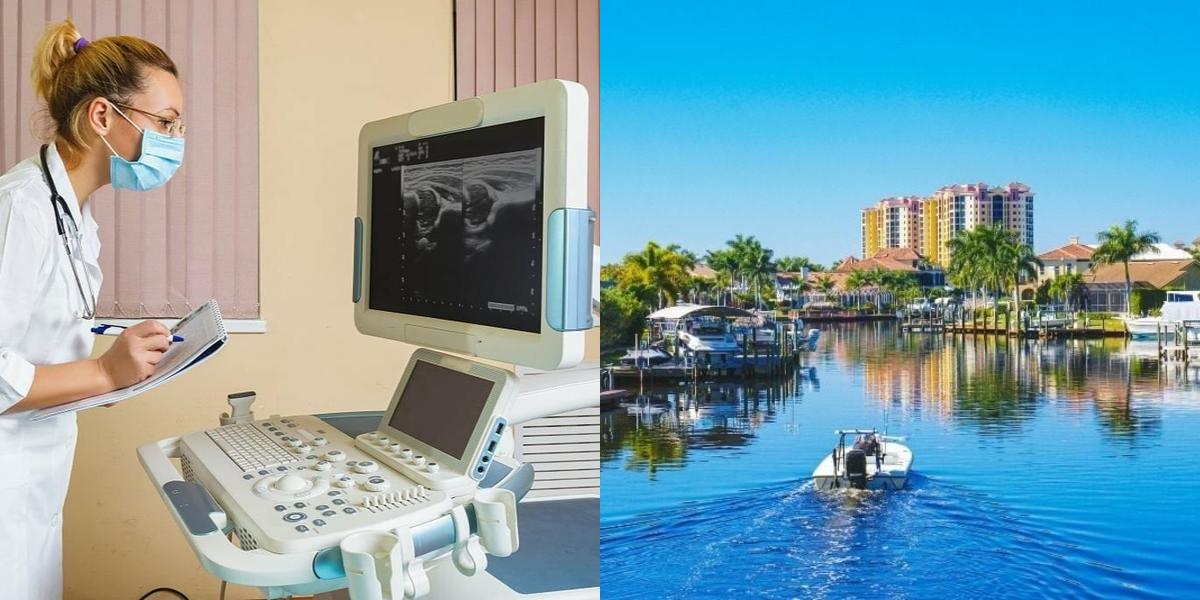How to Become a Medical Sonographer in Florida (2026)

A diagnostic medical sonographer uses specialized imaging equipment to help physicians diagnose and monitor medical conditions. In Florida, this role offers strong job prospects, with the U.S. Bureau of Labor Statistics projecting a 13% national employment growth for sonographers between 2024 and 2034. As of May 2024, medical sonographers in Florida earn a mean annual wage of $82,590 ($39.71 per hour).
Here's how to become a medical sonographer in Florida.
How long does it take to become a sonographer in Florida?
After completing college-level prerequisites, it typically takes two years to complete a full-time Associate of Science (A.S.) degree in diagnostic medical sonography.
What is the quickest way to become a sonographer?
The quickest path is to complete your prerequisite courses, enroll in an accredited two-year associate degree program, and pass your ARDMS certification exams immediately after graduation.
Who earns more, RN or sonographer?
While registered nurses (RNs) earn an average of about $89,000 per year, sonographers earn $82,590 annually on average in Florida. However, specialized sonographers in areas like echocardiography or vascular imaging can earn higher pay.
Do you need a license to be a sonographer in Florida?
Florida does not require a state license for diagnostic medical sonographers. However, nearly all employers require national ARDMS certification as the standard for employment.
Final Thoughts
Becoming a medical sonographer in Florida can lead to a rewarding and stable healthcare career. With an average annual salary above $80,000 and high demand across hospitals and clinics, now is an excellent time to enter the field.
To explore your next step, check out these helpful guides:
- Cheapest and Fastest Diagnostic Medical Sonography Programs
- Online Diagnostic Medical Sonography Classes
- Diagnostic Medical Sonographer vs Registered Nurse
Compare accredited programs, tuition, and flexible schedules through Dreambound and start your journey toward becoming a certified medical sonographer today.

Athena is Co-founder and CEO of Dreambound.



